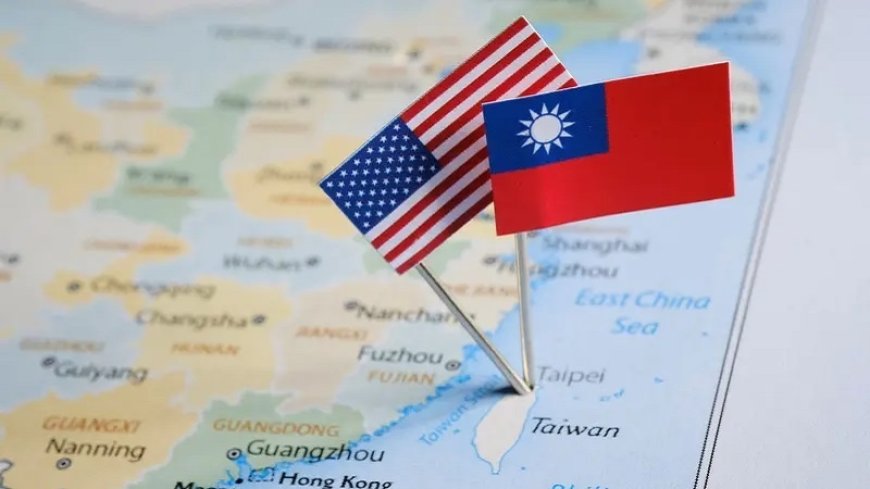US Gains $360 Million from Taiwan-China Dispute Amid Rising Tensions

The United States has secured a $360 million arms deal with Taiwan amid ongoing tensions between China and the island nation. The Pentagon's Defense Security Cooperation Agency announced the sale, which includes advanced drones and missiles aimed at bolstering Taiwan's defense capabilities.This latest development comes against a backdrop of heightened warnings from Beijing, which has consistently cautioned foreign nations, particularly the US, against actions that might encourage separatist movements in Taiwan. China considers Taiwan an inseparable part of its territory and views any foreign military support for Taiwan as a direct challenge to its sovereignty.
The contract, confirmed by sources including Reuters, encompasses 300 units of anti-personnel and anti-armor ammunition, ALTIUS 600M-V unmanned aerial vehicles, and other related equipment. Additionally, Taiwan will receive small guided missiles capable of hovering over a target area before launching an attack. This arsenal is intended to enhance Taiwan's security, maintain political stability, ensure military balance, and support economic progress.
Taiwan's defense ministry has expressed approval of the US's efforts to increase arms sales to the island, though it has also voiced frustration over delays in the delivery of these shipments. The acquisition of these weapons is seen as a critical step in strengthening Taiwan's defensive posture in the face of growing threats from China.The US, bound by its Taiwan Relations Act, is obligated to provide Taiwan with defensive arms and services necessary for its self-defense. This stance has long been a point of contention for Beijing, which perceives US military support as a provocation that undermines regional stability.
The broader geopolitical context includes a series of military exercises and displays of power in the Taiwan Strait. The Chinese military has frequently conducted drills and flown sorties near Taiwan's airspace, signaling its readiness to assert control over the region. In response, Taiwan has ramped up its own defense measures, seeking to fortify its military capabilities with support from the US and other allies.
International reactions to the arms deal have been mixed. While some nations view it as a legitimate effort to support Taiwan's right to self-defense, others are concerned about the potential for escalating military conflict in the region. Analysts suggest that this arms sale could lead to a new phase of military brinkmanship, with both China and Taiwan enhancing their military preparedness.
In addition to the military aspects, this arms deal has significant economic implications. The $360 million contract is a boon for the US defense industry, underscoring the strategic and economic ties between Washington and Taipei. The deal is expected to have ripple effects on the regional arms market, potentially prompting neighboring countries to reconsider their own defense strategies and alliances.
As tensions continue to simmer, the international community remains watchful of any developments that might tip the balance towards conflict or peace. The sale of these advanced weapon systems to Taiwan represents a pivotal moment in US-Taiwan relations and a significant chapter in the broader narrative of US-China geopolitical rivalry.The unfolding situation demands careful diplomatic maneuvering to prevent further escalation and to seek avenues for peaceful resolution. The world watches closely as the US, China, and Taiwan navigate this complex and fraught relationship.













































